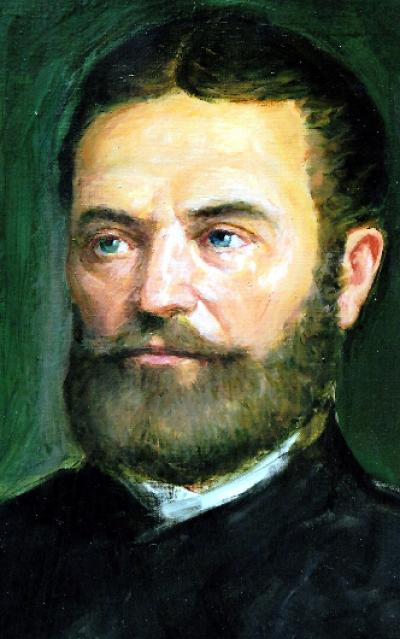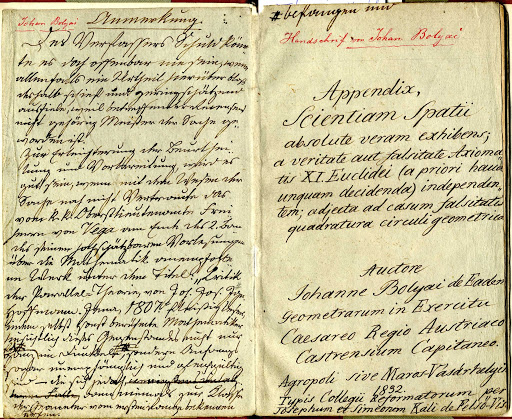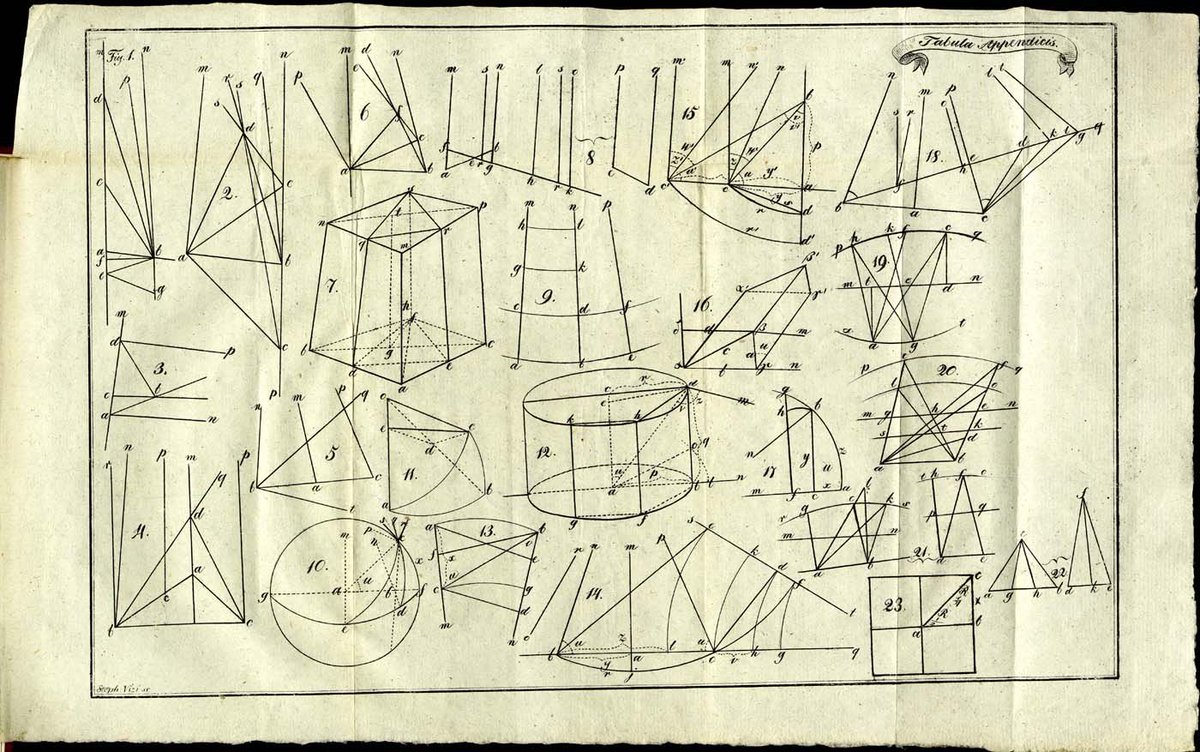Mini Hungarian language lesson: parallels.
Today I& #39;m going to talk about a mathematician whose name is virtually unknown outside Hungary, even though his results formed the basis of modern physics, Einstein& #39;s general relativity in particular.
Today I& #39;m going to talk about a mathematician whose name is virtually unknown outside Hungary, even though his results formed the basis of modern physics, Einstein& #39;s general relativity in particular.
János Bolyai, was born in 1802, the son of Farkas Bolyai, also a mathematician.
He studied military engineering at the Theresianische Militärakademie in Wiener Neustadt, and reportedly was bored by it, so he set about to reform geometry as we know it.
As you do.
He studied military engineering at the Theresianische Militärakademie in Wiener Neustadt, and reportedly was bored by it, so he set about to reform geometry as we know it.
As you do.
He was looking at Euclid& #39;s infamous 5th postulate about non-parallel lines always intersecting in a single point at a finite distance.
Many had tried and failed to prove this postulate from Euclid& #39;s other axioms, and as it turns out, their failure was with good reason.
Many had tried and failed to prove this postulate from Euclid& #39;s other axioms, and as it turns out, their failure was with good reason.
In 1823 he wrote to his father the famous words: "Out of nothing, I created a new, different world."
But the fact he was a military officer and not a mathematician worked against him. His attempts to publish his results failed until 1832, as an appendix to his father& #39;s book.
But the fact he was a military officer and not a mathematician worked against him. His attempts to publish his results failed until 1832, as an appendix to his father& #39;s book.
This work, only known as "Appendix", laid down the foundations of what he called "absolute geometry": a geometry without the restriction of the plane being flat.
In some of his abstract worlds there were no parallel lines, in others, non-parallel lines wouldn& #39;t always intersect.
In some of his abstract worlds there were no parallel lines, in others, non-parallel lines wouldn& #39;t always intersect.
This meant Euclid& #39;s fifth postulate was indeed unprovable, rather it is just one of the possible alternative postulates that will create different curved geometries.
"But which one represents our world?", he mused. It was no longer obvious that geometry is intrinsic in reality.
"But which one represents our world?", he mused. It was no longer obvious that geometry is intrinsic in reality.
He sent a letter to Gauss to inform him of his results, but Gauss claimed he had already discovered them. (He probably didn& #39;t, although from his manuscripts it seems like he had definitely toyed with some of the ideas outlined by Bolyai.)
"Appendix" was to be his only mathematical publication until his death in 1860, even though he studied several other areas of mathematics, like number theory, algebra and complex numbers, sometimes coming up with interesting results that few people got to know about.
After his death, his manuscripts were archived and researched extensively.
One of the nuggets unearthed is a single sentence about his suspicion that the geometry of space is closely linked to the law of gravity, which is the starting point of Einstein& #39;s general relativity.
One of the nuggets unearthed is a single sentence about his suspicion that the geometry of space is closely linked to the law of gravity, which is the starting point of Einstein& #39;s general relativity.
And while his work wasn& #39;t celebrated much during his lifetime, his name is born by schools and streets today, and is thus known by many people in Hungary, even though most still don& #39;t quite know what he really is famous for.
P.s.: there is a delightfully mad conspiracy theory that Einstein in fact "stole" the theory of general relativity from Bolyai, having pilfered and then destroyed the manuscript pages on which Bolyai developed it.
Of course that& #39;s bobbins, in reality, Einstein was only familiar with his published work, not even the aforementioned single sentence about the link between gravity and geometry was known to him.

 Read on Twitter
Read on Twitter




